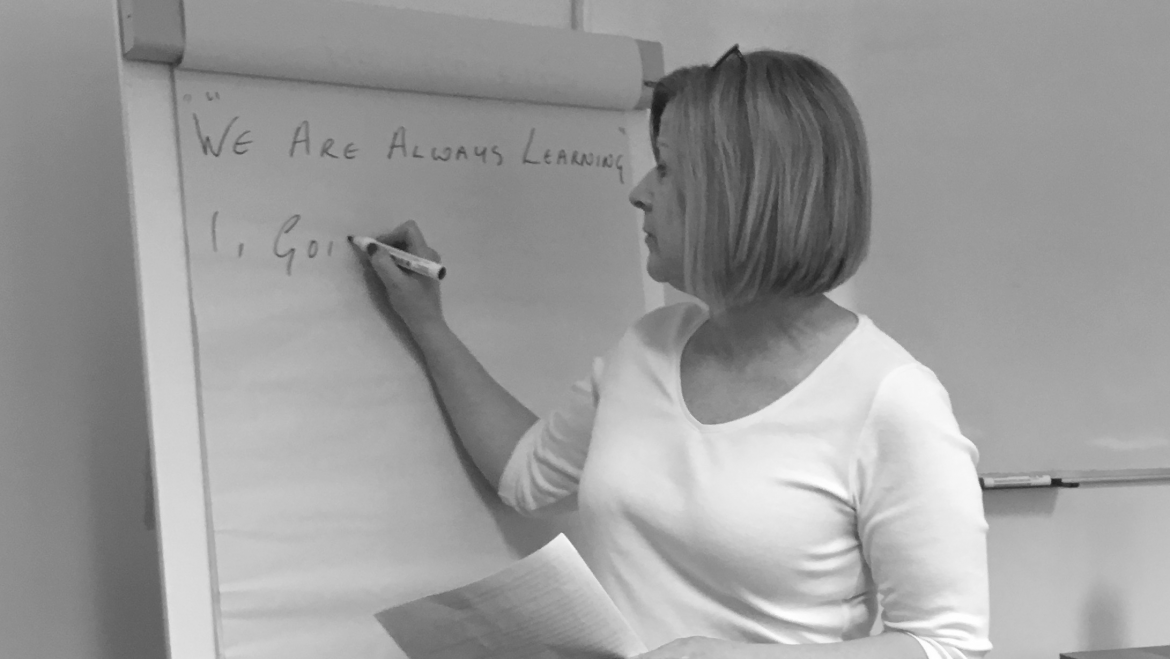So many adults feel embarrassed to even tell friends that they are fearful of the water let alone why.
That’s how I ended up in trouble in deep water! I understand how you feel. This was me as a teenager. I wasn’t scared of the water then but I wasn’t a strong swimmer and was scared to go out of my depth.
Whilst at a pool with friends, I was the only one who couldn’t swim but allowed peer pressure to push me into the deep end, holding on to the side, whilst they all jumped in. At some point I let go and panicked and went under only to be grabbed by a friend.
I was safe and didn’t need any other help but what happened after that I have no memory of. All I remember was the fear and panic of not being able to breathe. It took me almost 20 years before I learnt to swim – as an adult – and overcome my fear of being in deep water.

Fast forward to today, I’ve been teaching swimming for a while and I recently decided to set up in my own business. I became an Aquaphobic Coach and with the sponsorship from YLK Mentors.
Part of the training for becoming a swimming teacher required me to learn pool rescue techniques and life support. The most crucial part for me was the depth test where I had to swim 3.5 metres under the water. I still at this point had no conscious memory of what happened to me as a teenager. Then came the day of the actual assessment. Even though I knew the pool, I could not remember what had happened to me there; it didn’t spark any fear yet I just knew that I was still fearful of trying to reach the bottom of the pool. For me it was all about worrying I would run out of breath. I was probably the weakest swimmer on the course at the time and everything about the rescue techniques was new to me. Back in those days, we had only three attempts at the depth test or failed the whole course, so my teaching career relied completely on passing it.
All my thoughts, my language, was negative towards myself: how will I breathe, I am going to run out of air, I have to do this. But I had an assessor who recognised my fear and I am still grateful for the encouragement and understanding shown to me that enabled me to take the first attempt.
It was at that point as I entered the water, swimming only 1-2 metres out of the 3.5, that the flash back happened. I saw myself under the water, panicking, bubbles over my head as I looked up with no control, sinking – and then my friend’s hand reaching in and grabbing me.
All that time ago, 20 years earlier, in the same pool. Attempt number 2, I wasn’t quite sure what I was telling myself but I know now I was allowing my fear to completely take over. As soon as I started my decent I came back up again, telling myself I would run out of air. Attempt number 3 came, my last chance.
My language to myself had to change and I had to believe I could do it. Everyone watching me was telling me to visualise myself doing it. So, I dived in and down I went, all the way 3.5 metres.
I had received the help and encouragement to conquer my fears and now I love teaching and helping people of all ages – children and adults – to overcome their fears in the water. The best reward is a smile and seeing it become easier for people the more they practise. But practise is not always the answer if you are scared, fearful, or worried about any part of swimming before, during, or after your lessons.

I can easily tell if someone is nervous or doesn’t understand an instruction, or maybe if they are just finding something difficult. On most occasions I am able to raise this and help with it. Although sometimes it can be more difficult to talk about it properly when there are others in the class, or if you are too shy or even embarrassed to say what it is bothering you. But please know that whatever you have to say or ask is important and it will help you. Often others feel the same. I have felt the same.
Children – and adults – can be nervous of their first lesson and this is completely normal. Even if you are just nervous of getting used to your swimming teacher and learning new skills. You’re really not alone.


